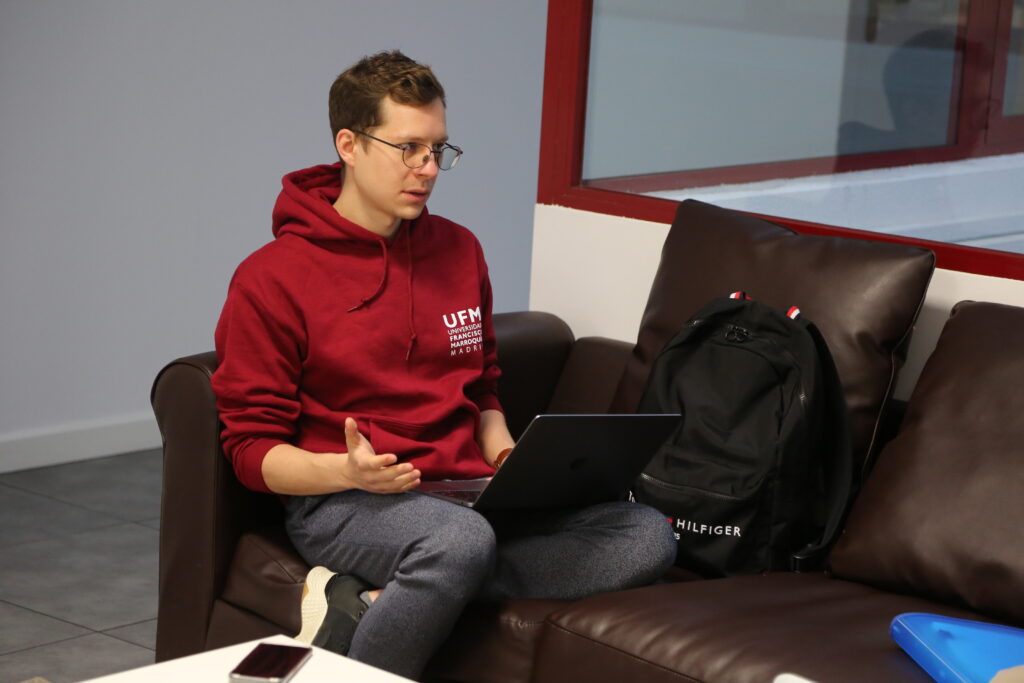Can Introverts Be Entrepreneurs?
DECEMBER 19, 2014
Entrepreneurship isn’t always the easiest path for the introverted among us. And most business schools don’t offer an MBA for entrepreneurs who are introverted. Some people are just born a little bit shyer and a little less comfortable in social situations. That, however, does not imply that introverted people can’t be successful entrepreneurs.
An MBA for Entrepreneurs—Introverted or Extroverted
Introverts often prefer to work by themselves. They may feel energized by others, but recharge by spending time alone each day. They also run the risk of having a much smaller network than their fellow entrepreneurs. Regardless of the technicalities, entrepreneurship puts us all in situations that increasingly require communication and interaction with others.
Whether you’ve built your own start-up or are currently looking to earn an MBA for entrepreneurs about to start a business, learning to cope with your strengths and weaknesses is key. Even if you characterize yourself as an introvert, don’t assume your personality isn’t fit for entrepreneurship.
Introverts can be just as successful as their extroverted counterparts if they consistently set realistic expectations and try their best to find paths around their purported weaknesses.
Introvert, Extrovert, or Ambivert?
While some people adamantly insist that one is either an introvert or an extrovert, others acknowledge room for a blend of traits. Consider the possibility of degrees of introversion. For example, if you love being around people but must have regular alone time, you may belong to a group of individuals called “ambiverts.” Beth Buelow, blogger and founder/CEO of The Introvert Entrepreneur, describes ambiverts as “those who walk the line between introversion and extroversion.”
Buelow also writes that “we’re all on a continuum, with some leaning way more to one side than another, and lots of us close to the middle.” She goes on to acknowledge that we may have a core, preferred way of being, but we have also cultivated ways to be extroverted when needed, such as times when leading a meeting or speaking in front of others may be necessary.
While these skills may seem impossible to the most cautious of introverts, rest assured that they can be cultivated.
Designing an MBA for Entrepreneurs
Weaknesses or Strengths?
If you worry that your introverted nature may not make you enough of a go-getter, think again. Some argue that the tide is turning, especially in areas such as sales. Daniel H. Pink, who penned the new book To Sell Is Human, sheds some light on this topic in a recent NPR article. Pink claims that the days of predatory selling are over.
Not to mention, the definition of “sales” has expanded to include what Pink calls “nonsales selling—persuading, influencing, convincing other people to part with resources.” In other words, on some level, we’re all in sales.
While it may be tempting to assume that extroverts are the better salespeople, Pink claims that in reality it’s the ambiverts—the people who are not so introverted that they resist starting up conversations, yet they know when to hold back. These are the people who know when to speak up and when to listen.
On a similar note, in a piece titled “The Introverted Entrepreneur’s Survival Guide,” James Wedmore notes that the signature traits of the introvert can result in powerful strengths. For example, introverts are often able to see the big picture, all the while observing the important little details that are crucial for successful businesses.
Not to mention, introverts often have the patience and self-awareness needed to look within and find answers to problems that may arise on the entrepreneurial path. Feeling like your introverted qualities are holding you back? Here’s a tip for your entrepreneurship education: try reframing your “weaknesses” as strengths, taking note of their true benefits.
Strategies for Introverted Entrepreneurs
If you’re an ambivert or a full-blown introvert, take note of these simple ways to cultivate your entrepreneurship skills and make the most of your gifts:
As noted by Grant Cardone in a recent article for Entrepreneur.com, there is undeniable value in finding your inner passion. Let your enthusiasm for your endeavor inspire you to share it with the world, and let it trump any doubt you have about how you’re perceived.
James Wedmore recommends consciously getting out of your comfort zone and practicing extrovert-natured skills, such as networking and public speaking. At the same time, he advocates conserving your energy by eliminating unnecessary activities that are draining.
In other words, don’t be invisible, but make an effort to give yourself the down time you need. In addition, he reminds us that creating a support system is essential, as introverts tend to go it alone without asking for help. After all, whether you’re an introvert, an extrovert, or an ambivert, having other like-minded individuals around can make all the difference.










